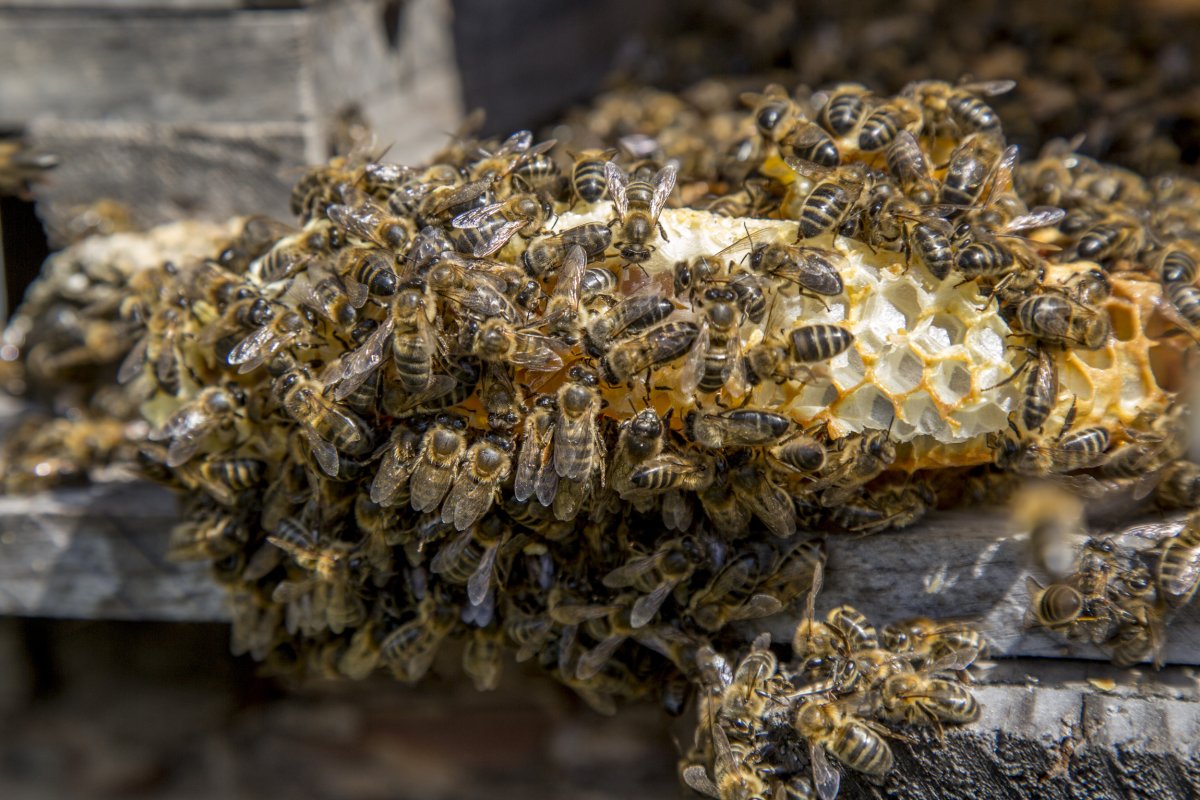Insect populations across the world are plummeting at a startling rate. A report led by The Wildlife Trusts highlights just how dramatic the decline has been over the last few decades—a trend the paper's authors call "the unnoticed apocalypse."
Six-legged bugs might not attract as much attention or sympathy as larger, cuddlier mammals, the authors say, but their decline has been more dramatic and may have greater ramifications for humanity. The study points to evidence that suggests insect populations may have shrunk 50 percent or more since the 1970s, due to a combination of factors including habitat loss, climate change and pesticide use.
The report incorporates dozens of studies from across the globe that together build a dystopian picture of a worldwide insect apocalypse. In the U.K., where The Wildlife Trusts is based, butterfly numbers fell 46 percent between 1976 and 2017. In Puerto Rico, the biomass of insects and spiders collected in sweep net samples fell 75-88 percent between 1976-1977 and 2011-2013. Meanwhile, in the U.S., five bumblebee species have experienced huge declines over the last 25 years, both in terms of range and abundance. One of those species—Franklin's bumblebee—is now globally extinct.
One of the steepest declines mentioned was revealed in a widely-circulated study, published in 2017. It found the total biomass of insects caught in German traps fell 75 percent between 1989 and 2014. This number hit 82 percent in midsummer, when insect activity peaks.
"We are witnessing the largest extinction event on Earth since the late Permian and Cretaceous periods," one paper mentioned in the report and published in Biological Conservation in 2019 stated. The paper was based on the analysis of 73 studies (primarily from North America and Europe) and shows local extinction of insect species is taking place at eight times the rate of other vertebrates. That accounts for a yearly decline of 2.5 percent.

While there is some argument over what exactly is causing this decline, it can generally be chalked up to a combination of factors related to human activity: habitat loss, pesticide use, climate change and other toxic chemicals that are being pumped out daily.
One study not included in the report found that as much as a tenth of the Earth's wilderness has been destroyed in the last 20 years. Another included in the report reveals 75 percent of global honey samples contain neonicotinoid insecticides.
Why should we care? The report's authors point to the fact that three-quarters of crops grown by humans need to be pollinated by insects, so our survival depends on their survival. But insects are vital to the ecosystems they inhabit, not only for plant pollination but for pest control, nutrient recycling and as food supplies for larger animals.
From a purely economic perspective, the U.S. economy receives financial rewards in the region of $57 billion per year from goods like silk and honey that require insect intervention.
"The consequences are clear; if insect declines are not halted, terrestrial and freshwater ecosystems will collapse, with profound consequences for human well-being," the report's authors state. "The good news is that it is not too late; few insects have gone extinct so far, and populations can rapidly recover."
"We urgently need to stop all routine and unnecessary use of pesticides and start to build a nature recovery network by creating more and better connected, insect-friendly habitat in our gardens, towns, cities and countryside."
Uncommon Knowledge
Newsweek is committed to challenging conventional wisdom and finding connections in the search for common ground.
Newsweek is committed to challenging conventional wisdom and finding connections in the search for common ground.
About the writer
To read how Newsweek uses AI as a newsroom tool, Click here.








